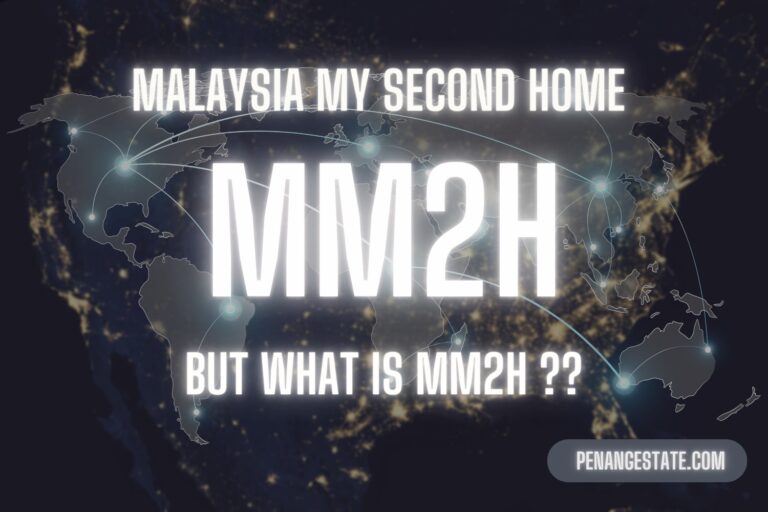
Why Are There So Many Fees Just to Rent a House? A Guide for Tenants in Penang
Lately, many of our clients have been asking: “Why do I have to pay so many fees just to rent a house?” If you’re planning to rent a property in Penang, it’s important to understand what these payments are for and how they protect both tenants and landlords.
In this article, we’ll break down the key costs you need to prepare for when renting a home, ensuring you know exactly what to expect before signing a tenancy agreement.

Before moving in, tenants are typically required to pay one or two months’ rent in advance. This amount is not an extra charge but simply covers the first month(s) of your stay. It ensures that you are financially committed to the property and helps the landlord secure the unit for you.
- Definition: Rent paid before the start of the lease, usually covering one or two months.
- Purpose: Acts as a financial commitment from the tenant to secure the property.
- Common Practices: Often required before moving in, along with other deposits.

The security deposit, usually equivalent to two months’ rent, serves as a safeguard for the landlord in case of unpaid rent or damages beyond normal wear and tear. If the property is returned in good condition at the end of the lease, this deposit is fully refundable.
- Definition: A refundable deposit held by the landlord to cover potential damages or breaches of contract.
- Typical Amount: Usually 1–2 months’ rent, depending on local rental laws.
- Refund Policy: Deducts for damages beyond normal wear and tear before being refunded.

Landlords often require a utility deposit to cover potential unpaid bills for electricity, water, or gas. The amount varies but is commonly around half month of the rental depending on the property type. If all utility bills are settled before moving out, this deposit will be refunded.
- Definition: A sum paid upfront to cover potential unpaid utility bills (electricity, water, gas, etc.).
- Purpose: Ensures the landlord or property management is not left with outstanding bills.
- Refundability: Usually refundable upon moving out, after deducting any unpaid amounts.

An access card deposit is a refundable security deposit required by landlords or property management when renting a unit in a condominium, gated community, or office building. It covers the cost of the access card(s) provided to tenants.
Definition: A refundable security deposit for access cards used to enter buildings, facilities, or parking areas in gated properties.
Purpose: Ensures controlled access, covers potential loss or damage, and maintains building security.
Refundability: Fully refundable if the card is returned in good condition; forfeited if lost or damaged.

Legal fees are charges by lawyers for drafting and reviewing legal documents to ensure they are binding and protect all parties. In tenancy agreements, these fees are usually paid by the landlord or shared. Costs are based on the rental amount or property value.
- Definition: Fees charged by lawyers or legal professionals for drafting and reviewing legal documents.
- Purpose: Ensures agreements are properly structured, legally binding, and protect both parties.
- Common Applications: Contract drafting, dispute resolution, and legal advisory services.
- Who Pays? Usually the party requesting the legal service, often shared in business transactions.

Stamping fees are government-imposed charges under the Stamp Act 1949 to validate legal documents, such as tenancy agreements and property transactions. These fees ensure the document is legally recognized and enforceable in disputes. The amount is calculated based on the rental amount and lease duration, with payment typically borne by the tenant.
- Definition: A government-imposed tax for stamping documents to make them legally valid under the Stamp Act 1949.
- Purpose: Ensures legal enforceability of agreements and prevents disputes.
- Common Applications: Tenancy agreements, sales and purchase agreements, loan agreements, etc.
- Who Pays? Typically the tenant for rental agreements.

Agent fees are commissions paid to real estate agents for their services in securing a rental or property transaction. In rentals, the fee is typically equivalent to one month’s rent for a one-year lease and is paid by the landlord or tenant, depending on the agreement. These fees cover services such as property listings, tenant screening, negotiations, and paperwork handling.
Definition: A commission paid to real estate agents for facilitating rental or property transactions.
Purpose: Covers services such as property listing, tenant screening, negotiations, and paperwork management.
Refundability: Non-refundable once the service is successfully rendered.

Sales and Service Tax (SST) is a government-imposed tax in Malaysia on the sale of goods and services, replacing the previous Goods and Services Tax (GST). It is designed to generate revenue for the government and applies to various industries, including certain real estate transactions. SST is typically included in the cost of taxable services, such as legal and agent fees, and is non-refundable as it is collected by businesses on behalf of the government.
Definition: A tax imposed by the Malaysian government on the sale of goods and services, replacing the previous Goods and Services Tax (GST).
Purpose: Generates revenue for the government and applies to businesses providing taxable goods and services, including certain real estate transactions.
Refundability: Non-refundable, as it is a government-imposed tax collected from consumers.
Summary
Summary of Rental-Related Fees in Malaysia
- Advance Rental – Upfront payment (1-2 months’ rent), non-refundable as it covers the first months.
- Security Deposit – Covers damages/unpaid rent, refundable if no issues.
- Utility Deposit – Covers unpaid bills, refundable if all bills are cleared.
- Indah Water – Mandatory sewage service fee, non-refundable.
- Access Card Deposit – Covers lost/damaged access cards, refundable if returned.
- Legal Fees – Payment for tenancy agreement drafting, non-refundable.
- Stamping Fees – Government tax to validate agreements, non-refundable.
- Agent Fees – Commission for real estate agents, non-refundable.
- SST – Tax on services like legal and agent fees, non-refundable.
For Example :
A 4 member family renting a House with rental RM 1,000 for one year
- Advance Rental : RM 1,000 ( one month )
- Security Deposit : RM 1,000 ( one month )
- Access Card Deposit : RM 50 per each card = RM 200 ( for 4 family member)
- Utility Deposit : RM 500 ( half month )
- Indah Water : RM 144 ( RM 12 per month)
- Agent Fees : RM 1,000 ( one month)
- Sst : RM 80 ( 8% of the agent fees)
- Stamping and legal fees : RM 258 ( based agreement )
More Project
The Crown
More InfosMoulmein Rise
More infoLumina Residence
More infoJesselton Courtyard
More infoMore New Project
More info
Previous slide
Next slide
More Property Infos
OPR Reduced to 2.75%: How It Affects Loans, Savings & Spending
What is the fees that need to pay while rent a property in
What is mortgage loan should we know?
Know more about the SPA, Stamp Duty Malaysia, and Legal Fees for Property Purchase in 2024
What is The progressive interest? How much they collect the interest?










